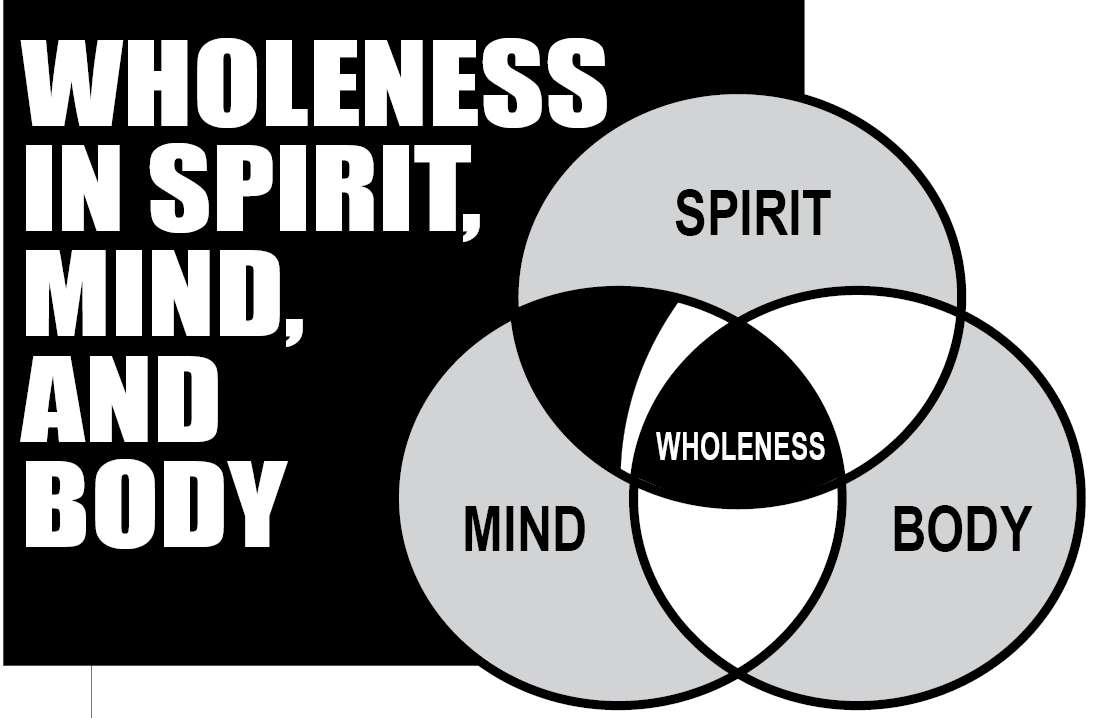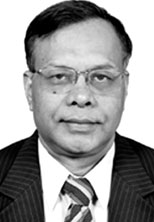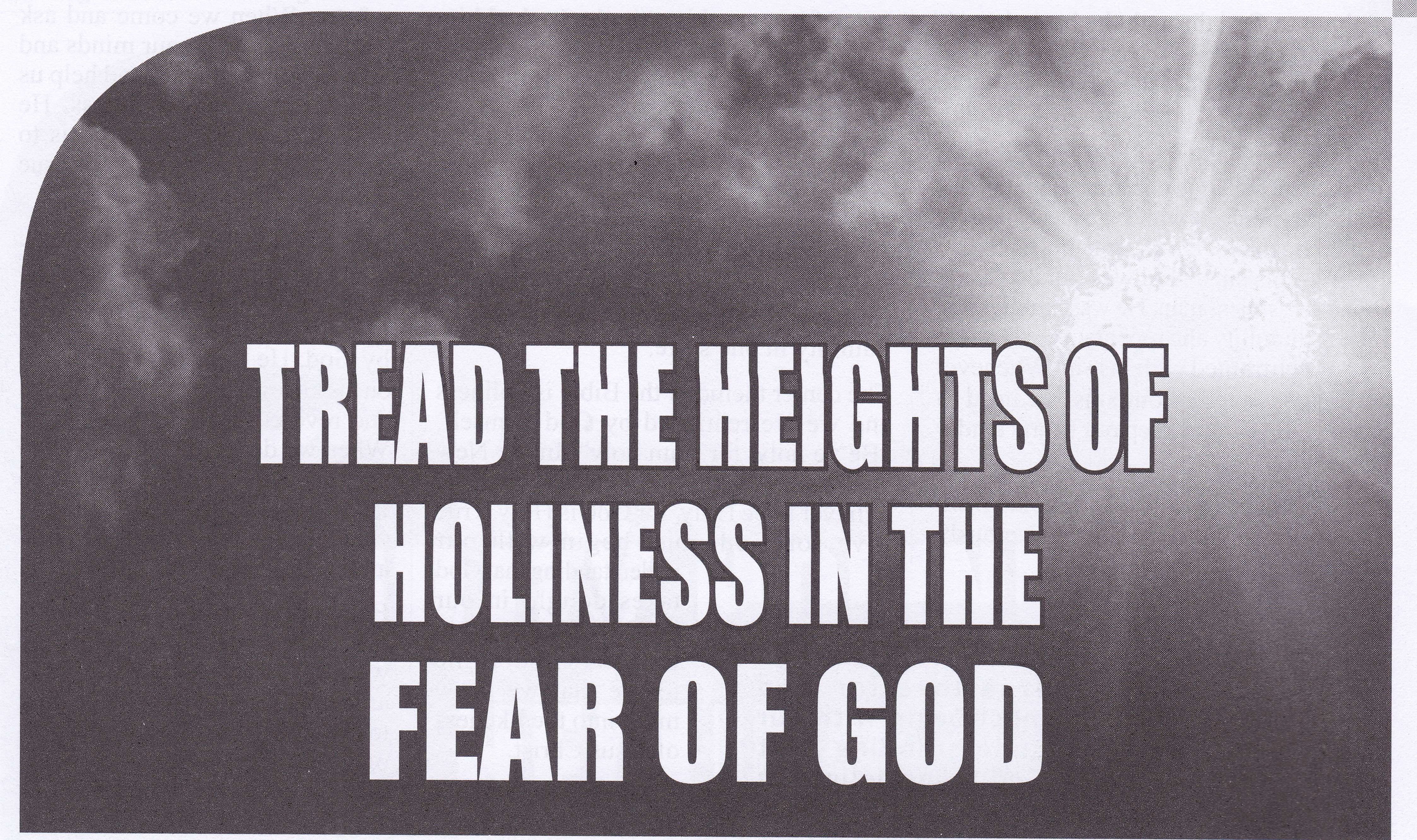

Wholeness in Spirit, Mind and Body
Dr. Varughese Philip
1. INTRODUCTION
Human beings are designed for wholeness in spirit, mind, and body. It seems that The New Age Movements are growing across the world and making their efforts to challenge the Christian perspective of wholeness. The increase of idolatry and occultism, promotion of yoga practices for transcendence, and the growth of secular psychotherapy indicate the human effort to actualize wholeness. The word wholeness is defined as completeness, soundness, or the achievement of full potential in every aspect of being.
The Biblical implication of wholism has an eschatological approach, where the Christians are looking forward to find its ultimate realization in the resurrected body in the future. Sin distorts the wholeness of a person and the restoration of wholeness has become God’s mission to give life in its full (Jn 10:10). To understand the meaning of wholeness, it is important to understand the Personality, Personality Dysfunctions, and Perfect Wholeness in Christian perspective.
2. PERSONALITY OF HUMANS
God created the humans with personality. The meaning of 'Personality' is individual’s distinguishing behavioral, emotional and attitudinal tendencies, and character traits and habits. Personality has physical, psychological, spiritual, and socio-cultural dimensions. In the beginning when God created humans, there were inbuilt unity, uniqueness, and unanimity in personality.
2.1. Unity of Personality
God created humans with a bio-psycho-spiritual personality. Humans are psycho-spiritual beings with wholeness integrating the body, soul, and spirit (Gen. 1:27). Apostle Paul says, “May your whole spirit, soul and body be kept blameless at the coming of Lord Jesus Christ” (1Thess. 5:23). The whole person is identified as a unity of body, mind/ soul, and spirit. The creation story in the Bible presents the physical body as the initial component of the human formed from the dust and man became a living soul by the breath of life (Gen.2:7). Soul expresses the mental faculty of human personality. The spirit reflects the God-like character in the personality. Change in the physical state affects the body and soul, psychological state impacts the spiritual and the physical well-being, and the spiritual state influences the soul and body.
Psycho-spiritual unity empowered by God and community enhances wholeness in human beings. In an anthropological terms ‘body’ refers to material substance, the word ‘soul’ indicates the seat of the intellect, emotion, and will, and the word ‘spirit’ denotes the whole person. The vital power of God animates the body, and the self interaction with God produces moral choices and behaviors. In the New Testament the body is considered as the temple of God (1Cor. 6:19-20). It reflects high view of human body. Further, the Bible says that Love God with your entire mind which indicates the intellectual, emotional, and spiritual aspect of mind (Mark 12:30). Moreover, the wholeness involves unity of all dimensions, such as body, mind, and spirit in community.
2.2. Uniqueness of Personality
The divine image in the humans makes them unique (Gen.1:27). There is a vital and immediate ‘built in’ relationship between “human and creator.” It makes humans transcendent over the rest of God’s creation. First, the imprint of the image provides relationality with the capacity to relate to others (Gen.1:26-28). The source of human personality is in the relationship within the Trinity itself. Also, God created male and female with the instinct of togetherness. Relationship with God, self, and others develops the wholeness. Second, the imprint of the image provides the space for religiosity and divine nature. Conformity to the will of God produces wholeness (Gen. 1:31).
Third, the imprint of the image provides rationality in humans. God created the universe by His Word (Gen.1:3-25). Human beings possess rational mind, and rational communication with God, self, and others enhances the wholeness. It also provides rational intuition and involves imagination and intelligence and actualizes a great potential to get knowledge about God and the world. Last, the imprint of the image produces responsibility in humans to subdue and rule the earth; they have possessed the delegated divine authority (Gen.1:26, 28).They have the capacity to propose and choose the right goals and strategies to achieve such goals. A wise use of the given resources intensifies wholeness.
2.3. Unanimity of Personality
The unifying factor to become ‘whole’ is in the relationship with the Trinitarian God. Agape is the binding force among Trinity, which is called self-giving. Further, Holy Spirit works through the intellect, emotion, and will, and enables an individual to become a whole person. Holy Spirit produces wholeness by communicating and moving with power against the forces of darkness. Furthermore, Christian wholism is in the commandment of love your God and love your neighbor (Mark 12:30-31). Love your God with mind implies the commitment of whole personality to an intimate and personal relationship with God. Loving our neighbor presupposes a relational, social, and cultural element.
Humans have a holistic dualism. It means “the material and immaterial substance of humans is distinguishable.” Hope of resurrection plays a significant role in transforming people, which requires holistic dualism. Christians have holistic dualism and communion with God revives physical energy, chemical imbalances, psychological functions, and spiritual activities. Holistic dualism challenges the materialistic view that says humans are mere matter with its functions. It questions the monism believing that humans are neither material nor spiritual and mind and body is one and the same thing. Also, it challenges pantheism believing that it will become one with the eternal mind of God. Holistic dualism limits the psychological view that thoughts, desires, commitments, and values control the behavior. It assists in evaluating the psychological theories, secularism, humanism, New Age Spiritism, and modern philosophies that challenge the Christian wholism.
3. PERSONALITY DYSFUNCTIONS THAT AFFECT WHOLENESS
Adam and Eve’s choice to sin against God affected their physical, mental, emotional and spiritual aspect of their lives (Gen.3:8). It hinders the moral choices, handicaps the social relationships and the relationship with God Himself. It results in sickness of body, soul, and spirit. It affects the behavior that contradicts God’s perfect design for humanity and opens the door for evil spirits’ presence to make them sick. The personality dysfunctions would affect the consciousness, conscience, and choices.
3.1. Consciousness
Created in the image indicates that humans have God-consciousness and social consciousness. Sin affects the intimacy with God and shifts consciousness, which has physical, psychological, and spiritual effects. Spiritual experiences have its origin in unconscious, breaking through into one’s consciousness. Psychologist Jung describes integration of conscious and unconscious contents as transcendent function. Unconscious level, conscious level, early experiences, crisis situations, and family relations contribute for moral development. Dysfunctions in emotional intimacy affect consciousness and spirituality. Mediation of transcendence enhances consciousness, emotional intimacy, and religiosity. Luther affirms that “in the spiritual realm, sin binds the human will and is a captive, slave, and servant either to the will of God, or to the will of Satan.”
Intimacy with the evil in the conscious or unconscious level results in demonic oppressions. Demonic oppressions could be mental, emotional, physical, or harassing circumstances. Manifestations of demonic oppression are blindness and hardness of heart towards the Gospel (2 Cor. 4:4), apostasy and doctrinal corruption (1 Tim. 4:1, 1 John 4:1, 2), and indulging in sinful defiling behavior (2 Pet. 2:1-12), either through personal and continual involvement in sin or by family involvement in the occult. Generational line, personal sin, occult sin, worship of Satan, alternative medical practices, religious sins such as abuse of gifts, heretical beliefs, un-confessed sins, unforgiving spirits, and ungodly soul ties are avenues of the entry of demons in humans. Sexual sins such as generational sins, sexual abuse, dominating parental soul ties, premarital sex, and all sexual perversions are also avenues of demons’ entry. Hypnosis and other trance states, yogic kundalini arousal, shamanism, lucid dreaming, drug states, meditation, biofeedback-induced consciousness, etc., alter the state of consciousness. Psychologists believe that “altered state of consciousness tends to open the door to spirit possession.” It affects the holistic development of humans and the transcendental consciousness.
3.2. Conscience
Human soul expresses the distinctiveness of human personality and functions closely with spirit. Soul involves intellect, emotion, will, and conscience that convict the wrong thoughts and actions. Conscience means co-knowledge or knowing together. Conscience exists and functions in all human beings apart from any moral or religious principles (Rom 2:12-15). It exercises a significant role in psychology and contributes for wholeness. Functions of conscience includes evaluating oneself in relation to standard (Rom 2:14-15), assuring consistent living (2Tim. 1:3), motivating constructively (Rom. 13:5), inhibiting unnecessarily (1Cor. 8:4-8), and producing feeling of guilt (1Jn 3:1-20). Moral and ethical standard of the Word is the foundation for developing Christian conscience.
Sin produces bondage, rebellion, guilt and shame in human nature. Bondage represents the areas controlled by sin. Through rebellion they wilfully choose personal desires rather than the will of God. Failure to keep the standard of God creates a guilty conscience and failure to keep the standard of the society produces shame. It results in neurosis such as anxiety disorders and obsessive compulsive disorders. Anxiety disorders are phobic disorder and panic disorder. Phobic disorders are characterized by persistent avoidance behaviour because of irrational fears of specific situation. Panic disorders are feelings of unreality, fears of dying, or doing something uncontrolled. Obsessive compulsive disorder is characterized by irrational thoughts of contamination, doubts, or violence which produce mental illness. Further, it results in psychoses in which there is a break with reality results in delusions or hallucinations. The symptoms arising from mental illness and demonization overlap to a considerable extent and indicator of demon possession is also found in psychopathology of non-demonic origin.
3.2. Choices
Body is the fundamental component of personality (Gen. 2:7, 21-23).Without a physical body there is no person. It is temporary and inferior to the promised spiritual bodies (1Cor. 15:42-53). John B. Wong asserts that “identity resides in the genetic code given to a person by God at the time of conception.” God has fashioned human body to engage in a meaningful creative work. Physical health and the healthy use of physical body for creative work enhance the wholeness. There is a mind and body connection, and emotions, attitudes and negative stresses can adversely affect the functioning of immune system. Psychological changes in the body can change brain chemistry and modify emotions, thinking and other psychological variables. Human will is what gives him/her the ability to make choices.
Hereditary, environment, and culture influence the choices. There are conscious and unconscious choices contrary to God’s design for human functioning. It disturbs the thoughts, emotions, and behaviours and results in various kinds of disorders. Paranoid personality disorders misinterprets the actions of others and excessively suspicious. Schizoid disorders detach from social relations. Borderline personality disorders disturb identity and express through sexual promiscuity, drug addiction, self mutilation, and suicidal acts. Lack of emotional depth, tendency to act impulsively, and sexual promiscuity indicate histrionic personality disorder. Moreover, genes of specific chromosomes play a part in causing psychiatric problems. Furthermore, psychosomatic disorders involve psychological, social, physical, and spiritual components. In a nut shell, wrong choices affect the wholeness of humans.
4. PERFECT WHOLENESS IN HUMANS
God requires every human to be perfect. Presenting every man perfect in Christ (Eph 4:13) is a self actualizing process. In the New Testament the word ‘maturity’ is translated as perfect, which indicates potential of a person to grow, develop or become complete. In the Christian maturity there are two processes. First, it is the process of salvation that is described as being saved, being sanctified, and being glorified, which is something that God causes it to happen. Second one is the maturity which focuses on the choice that renews the imprint of the image. Maturity requires health, healing, and holiness.
4.1. Health
Health is an integral concept, which comprehends the totality of human being. Wholeness involves health at a bodily, mental, and spiritual level. The Hebrew word shalom reflects healthy human personality. “Wholeness in the Old Testament is conceptually related to the notions of holiness and healthiness” In the OT, one’s spiritual prosperity was measured by material prosperity.
However, the New Testament blessings are spiritual. Cross has changed everything including a change of dispensation. Apostle John says, “I pray that you may enjoy good health and that all may go well with you, even as your soul is getting along well” (3 John 2). Gaius was not probably well off and in poor health; however, he was rich towards God. Improvement of physical and material situation may benefit him and the Church. Christ came to give eternal prosperity rather than material prosperity. Indian psychologist Pestonjee asserts that the “mind draws its power from the ‘spirit,’ transmits to the entire body organs, and ensures their rhythmic and coordinated functioning.” Therefore, the physical part of a human being is not as important as the spiritual, intellectual, and emotional aspect.
4.2. Healing
The process of healing and holiness are the essential factors for wholeness of every aspect of human being. Hebrew word rapha often refers to spiritual rather than physical healing (Jer. 3:22). Peter makes it plain that the healing refers in the book of Isaiah 53:3 is spiritual. Jung’s clinical experience convinced him that spirituality plays a significant role in psychological healing. Healing brings back something which has been impaired. Humans experience emotional healing and wholeness through a personal relationship with the living God and through loving relationship with others. Spiritual discipline and moral decisions exercise a dominant role in psycho-spiritual wholeness.
Practice of confession is an important factor in healing the troubles in body, mind, and spirit. Confession is relinquishing the myth of perfection and the crushing weight of guilt in exchange for God’s love and mercy. Feeling of forgiveness is essential for healing, which is God’s provision for neurotic factor in human personality. Confession uncovers emotional turmoil and forgiveness restores relationship. Conversion challenges the distortions in transcendental consciousness and makes an individual less self-reliant and more dependent on others. Moreover, conversion brings one under the control of the Holy Spirit and challenges the dysfunctions in emotional intimacy to enhance wholeness.
4.3. Holiness
Human holiness is intrinsically bound to divine holiness. Christians are called to be morally pure, righteous and spiritually transcendent (John 17:14). Also, it is rooted in the ethical purity and moral perfection. Man’s holiness is actualized by participation in the body of Christ. Holiness ultimately yields wholeness and sound mind. However, promotion of health is in no way substitute for holiness. Christian meditation enhances holiness. Christian meditation seeks not to lose self but self centeredness. Yoga involves emptying mind and opens the door for demonic spirit, and blocks the transforming work of the Holy Spirit. Faith is the fundamental category in human quest for transcendence. However, non-Christian elements in transcendental consciousness harm the Christian wholeness. Faith centered experience helps to discern the non-Christian elements.
Healthy sexuality in its holiness reflects the nature of God and influences the wholeness. Physical relationship involves physical, mental, emotional, spiritual, and mystical union. Integration of physical, psychological, spiritual, and socio- cultural dimensions enhance healthy sexuality. Psychologist Jones affirms that wholeness and holiness in sexuality mirrors the nature of God and of Christ’s relationship to the church. Similarly, “When human sexuality is expressed coordinately, responsibly, personally, faithfully, and with the urgent desire to share rather than to possess, it is indeed an appropriate symbol for the mystical union which is between Christ and His church and for the relationship of finite person to their creator.” Healthy sexuality in a God-ordained way reflects the image of God. Irreligious and immoral behaviors affect holiness and wholeness.
5. CONCLUSION
God created humans with bio-psycho-spiritual unity. There is a unity in body, mind, and spirit. Imprint of the image in human makes them unique with the capacity of relationality, religiosity, responsibility, and rationality. Sin affects the consciousness, conscience, and choices we make. It results in demonic intrusions, psychological problems, and psychiatric issues. Restoration of the image through spiritual life, confession and conversion, and intimacy with God through meditation bring health, healing, and holiness. It transforms the traits, thoughts, and transcendence to enhance wholeness.



